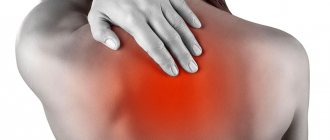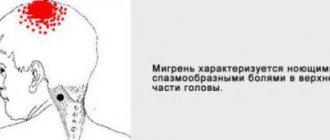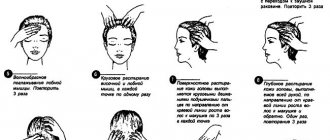Tinnitus is an auditory sensation observed in the absence of an external sound signal. In most cases, we are talking about subjective tinnitus (only the person himself can hear it), and only sometimes about objective noise (if, for example, the auditory sensation is caused by involuntary muscle vibration, then the doctor can also hear it - using a phonendoscope).
Data on the prevalence of tinnitus vary widely. This is explained precisely by the fact that tinnitus is not recorded objectively. The following experiment was conducted: people who had never complained of tinnitus before were placed in conditions of absolute silence. And 93% of those who took part in the experiment said they heard some kind of noise. On the one hand, we can simply not pay attention to the fact that we have tinnitus, since we live in a constant external sound background (for a city resident, this is a standard situation). On the other hand, in the absence of an external signal, hearing becomes sharper and begins to “read” the noises of the body itself, or the nervous system “makes up” for the missing sounds by generating a signal on its own (at the level of the nervous system this is no longer an acoustic vibration, but an electrochemical process).
How does tinnitus manifest?
Structure of the Ear Tinnitus can also be described as ringing, rustling, creaking or buzzing in the ears.
In most cases, tinnitus does not interfere with normal life. At the same time, the symptom may intensify. Doctors distinguish four degrees of tinnitus (depending on the patient’s condition):
- first degree – tinnitus does not affect a person’s well-being;
- second degree – noise causes discomfort in quiet conditions and interferes with sleep;
- third degree - discomfort from tinnitus is constantly felt, the person does not get enough sleep, the quality of life deteriorates significantly;
- fourth degree - tinnitus creates unbearable discomfort.
An important point: noise is felt in one or both ears. Noise in one ear is caused by a local cause; if there is noise in both ears at once, then the problem is most likely systemic in nature.
It is also important what other symptoms are observed along with tinnitus. For example, is tinnitus accompanied by hearing loss (hearing loss). Sometimes tinnitus is accompanied by symptoms such as headache, dizziness, and nausea.
Heaviness in the head, squeezing
Alexander
13374 views
November 30, 2020
Good evening, lately the problem is that in the evening or sometimes even during the day, there is a feeling that my head is being squeezed in a vice, and it becomes heavy. Pain and heaviness are either localized in the occipital region, or in the temples (either in one or both at once). When measured, blood pressure shows normal values of 120/80, 130/80. The pulse is also normal, this has been happening to me for 2-3 years now, and it is either localized in the head area, or when the head lets go and there is no heaviness, there may be problems with the stomach and intestines, such intervals replace each other and can last for several months. For the last 1-2 months, the problem is in the head. When this squeezing begins, a strong feeling of anxiety also arises, sometimes I take half a tablet of phenozepam, but lately I haven’t really felt any effect from it. The psychotherapist and neurologists diagnosed anxiety = depressive disorder, hypochondriacal syndrome, neurotic disorder. For the last week I have been taking eye drops prescribed by the ophthalmologist, Ophthalmoveron, dexamethasone and cornegel. I have been taking them for 4 days because I wear SCL and recently suffered from nosopharyngitis and as a result my cornea became inflamed. I also read somewhere that Dexamethasone causes tension in the nervous system. I also have problems with sleep, I go to bed late lately and accordingly get up late, because I can’t bring myself to wake up earlier. Because of this, at the moment there are some concerns about playing sports, etc., I’m afraid of a stroke or a heart attack, etc. Although this has already happened to me, for some reason my own feelings at the moment turn out to be stronger than common sense. Over the past few years, I passed an incredibly huge list of tests, but did not really receive complete treatment, although I worked with psychotherapy for almost a year and it seemed to lead me to positive dynamics a little, but it did not last long, perhaps just the wrong specialist. Below I have attached the latest tests and diagnostic studies for the last 1-2 months. A little about myself, height 182 cm, weight 74 kg. There is C-shaped scoliosis of the 1st degree, gastritis. and as far as I understood from the last MRI, the initial signs of osteochondrosis of the cervical spine, there are also nodes in the thyroid gland, all hormones, including the tumor marker calcitonin, were tested recently, everything was normal. Also, sometimes lately I have been bothered by pain in my left knee, more precisely under it, when getting up, and tension in my left leg. I was told that this could be due to scoliosis or due to an uneven position of the pelvis. And they advised me to go to an osteopath. History of anxiety disorder, cervical spine dorsopathy, muscular tonic syndrome, hypochondriacal disorder and sometimes carcinophobia. Tell me what should I do, and how dangerous is my condition, based on the tests and diagnostic procedures that I attach below 1) MRI of the brain 2) MRI of the cervical spine 3) MRI of the veins and venous sinuses of the brain 4) Blood biochemistry 5) Ultrasound of the cervical region 6) CT ABP 7) CT of the kidneys UAC 9) OAM 10) Ultrasound of neck vessels 11) Ultrasound of the heart 12) ECG at rest 13) General stool analysis 14) Feces by PCR for HP 15) Feces for giardiasis 16) Feces for pancreatic elastase 17) FGDS 18 ) Ultrasound of the thyroid gland 19) Vitamin D - 33.4 20) Vitamin B was taken about 3 months ago and was normal 21) Steato Liver test There are also other tests, you can’t remember everything
Pain and heaviness are either localized in the occipital region, or in the temples (either in one or both at once). When measured, blood pressure shows normal values of 120/80, 130/80. The pulse is also normal, this has been happening to me for 2-3 years now, and it is either localized in the head area, or when the head lets go and there is no heaviness, there may be problems with the stomach and intestines, such intervals replace each other and can last for several months. For the last 1-2 months, the problem is in the head. When this squeezing begins, a strong feeling of anxiety also arises, sometimes I take half a tablet of phenozepam, but lately I haven’t really felt any effect from it. The psychotherapist and neurologists diagnosed anxiety = depressive disorder, hypochondriacal syndrome, neurotic disorder. For the last week I have been taking eye drops prescribed by the ophthalmologist, Ophthalmoveron, dexamethasone and cornegel. I have been taking them for 4 days because I wear SCL and recently suffered from nosopharyngitis and as a result my cornea became inflamed. I also read somewhere that Dexamethasone causes tension in the nervous system. I also have problems with sleep, I go to bed late lately and accordingly get up late, because I can’t bring myself to wake up earlier. Because of this, at the moment there are some concerns about playing sports, etc., I’m afraid of a stroke or a heart attack, etc. Although this has already happened to me, for some reason my own feelings at the moment turn out to be stronger than common sense. Over the past few years, I passed an incredibly huge list of tests, but did not really receive complete treatment, although I worked with psychotherapy for almost a year and it seemed to lead me to positive dynamics a little, but it did not last long, perhaps just the wrong specialist. Below I have attached the latest tests and diagnostic studies for the last 1-2 months. A little about myself, height 182 cm, weight 74 kg. There is C-shaped scoliosis of the 1st degree, gastritis. and as far as I understood from the last MRI, the initial signs of osteochondrosis of the cervical spine, there are also nodes in the thyroid gland, all hormones, including the tumor marker calcitonin, were tested recently, everything was normal. Also, sometimes lately I have been bothered by pain in my left knee, more precisely under it, when getting up, and tension in my left leg. I was told that this could be due to scoliosis or due to an uneven position of the pelvis. And they advised me to go to an osteopath. History of anxiety disorder, cervical spine dorsopathy, muscular tonic syndrome, hypochondriacal disorder and sometimes carcinophobia. Tell me what should I do, and how dangerous is my condition, based on the tests and diagnostic procedures that I attach below 1) MRI of the brain 2) MRI of the cervical spine 3) MRI of the veins and venous sinuses of the brain 4) Blood biochemistry 5) Ultrasound of the cervical region 6) CT ABP 7) CT of the kidneys UAC 9) OAM 10) Ultrasound of neck vessels 11) Ultrasound of the heart 12) ECG at rest 13) General stool analysis 14) Feces by PCR for HP 15) Feces for giardiasis 16) Feces for pancreatic elastase 17) FGDS 18 ) Ultrasound of the thyroid gland 19) Vitamin D - 33.4 20) Vitamin B was taken about 3 months ago and was normal 21) Steato Liver test There are also other tests, you can’t remember everything
The question is closed
voltage
basis of analysis
mri vein
Causes of tinnitus
Tinnitus can be caused by a wide range of causes, including some serious medical conditions. First of all, tinnitus is caused by pathologies of the hearing aid. They can be classified by area of localization.
Pathologies of the inner ear:
- presbycusis – atrophic and dystrophic changes in the inner ear of an age-related nature. In this case, tinnitus usually accompanies the development of hearing loss;
- noise damage to the inner ear. The reason may be, for example, listening to loud music on headphones for a long time;
- long-term use of certain medications that are characterized by ototoxicity (adverse effects on the hearing organs);
- otosclerosis (pathological growth of bone tissue of the inner ear). With otosclerosis, noise and hearing loss are observed first in one ear, and a few months later the pathology may develop in the second ear;
- Meniere's disease (fluid accumulation in the inner ear cavity). The main symptom of the disease is dizziness;
- labyrinthitis (inflammation of the inner ear). It also manifests itself primarily as dizziness. Tinnitus is a minor symptom.
Middle ear pathologies:
- Otitis media (inflammation of the middle ear). The main symptoms are ear pain, fever, and possible purulent discharge from the ear. Ear congestion and noise are caused by the presence of fluid (such as pus) in the tympanic cavity;
- exudative otitis (accumulation of fluid in the middle ear cavity). This type of otitis media is worth highlighting separately, since, as a rule, there are no other symptoms with it, except for hearing loss and tinnitus;
- damage to the eardrum (for example, as a result of sound trauma).
Pathologies of the external ear:
- sulfur plug;
- an insect or foreign body entering the ear canal.
Other possible causes of tinnitus
Tinnitus can also be caused by:
- pathologies of the cardiovascular system
. In particular, with atherosclerosis, plaques on the walls of the arteries lead to disruption of blood flow, and turbulence (turbulence) occurs. This uneven movement of blood causes vibration, which is perceived by the hearing aid and is felt as tinnitus. The sensation of tinnitus intensifies with an increase in blood pressure, which can be persistent (hypertension), or can be caused by situational factors such as stress, alcohol or caffeine consumption;
- pathologies of the nervous system
. Noise in one ear, accompanied by hearing loss, dizziness and a sensation of “goosebumps” crawling across the face, is observed with a neuroma (tumor of the auditory nerve). Tinnitus can also be a symptom of multiple sclerosis or migraine.
If your head is spinning. Sudden loss of balance is a dangerous symptom
Even the most harmless dizziness at first glance can be a symptom of serious illnesses. Natalya Alekseeva, an otoneurologist, leading researcher at the Scientific Center for Neurology, Doctor of Medical Sciences, told AiF readers what to pay attention to . Yulia Borta, AiF: Natalya Stepanovna, if in the store you feel dizzy not from stuffiness and excitement, then from what?
Natalya Alekseeva: When we tilt and straighten the cervical spine or turn our heads to the right and left, looking at the goods located on the upper shelves, we have to throw our heads back. In this case, normally the cervical vertebrae should shift by 1-2 mm. In the case of pathology (instability in the upper cervical spine), the vertebrae shift by 3-4 mm and impair blood flow in the artery that supplies the vestibular apparatus of the inner ear and vestibular formations in the brain. This causes dizziness. The same thing, by the way, happens when swimming with your head thrown back - a favorite style of many women. And then they complain that after swimming they feel unsteady. These are examples of physiological dizziness. It can also occur in transport, etc. - How to deal with this? — Vestibular gymnastics is necessary - eye movements, head turns no more than 45 degrees and other exercises. But do not overdo the amount of these exercises. It is best to first consult a neurologist or otoneurologist. - It turns out that this is not such a terrible misfortune... - Dizziness is a common symptom, but you don’t need to interpret it yourself. Serious diseases may be hidden behind it. For example, acute dizziness can develop as a result of bacterial and viral damage to the inner ear - labyrinthitis. Usually occurs after otitis. In this case, dizziness is accompanied by noise in the ear and hearing loss. Another possible cause is tumors of the auditory nerve. In young people, dizziness is often associated with viral damage to the vestibular nerve. Those who suffer from ARVI on their legs are especially at risk. Fever, muscle pain, sore throat, runny nose go away, and after a week or even suddenly your head begins to feel dizzy, and along with this nausea and vomiting appear. Dizziness can be caused by acute disruption of blood flow in the inner ear. This happens in people with low blood pressure and a vascular abnormality (small diameter of the vertebral artery).
Dizziness combined with impaired coordination, vision, and weakness in the arm and leg is one of the early signs of a stroke. Even if all these symptoms have passed within 24 hours, you should consult a neurologist. Dizziness and imbalance are accompanied by exacerbation of multiple sclerosis (a disease of the central nervous system). Brain tumors also cause dizziness. This disease is the most insidious. It begins with a slight imbalance: the patient begins to spread his legs wider without noticing it. Violation of stability when turning is also very typical. The patient complains that he turned around and everything swam before his eyes. — What examinations are needed? — Be sure to do an MRI of the brain, determine blood pressure, heart rate, examine blood flow in the arteries in the neck with ultrasound, and conduct vestibular tests. If you complain of dizziness and are prescribed sedative medications, you should consult with another specialist and insist on additional examinations.
A set of exercises to combat dizziness.
Read the article...
When should you see a doctor if you have tinnitus?
If you begin to hear tinnitus, that is, if it appears and does not go away, you need to see a doctor and find out its cause in order to exclude the development of the most dangerous diseases.
You should definitely consult a doctor if you experience the following along with tinnitus:
- hearing loss;
- neurological symptoms (dizziness, loss of coordination, nausea, vomiting);
- severe headache or pain in the heart area.
You should also see a doctor if the intensity of the noise increases (if the tinnitus is causing a deterioration in your quality of life).
What to do if your ears are blocked
Surely everyone has had their ears blocked at least once in their life.
The situations that lead to this are quite diverse; they can be either completely physiological or signal problems in the functioning of our hearing organ.
In what cases should you be wary and listen more closely to your body, and when should you not worry? How to get rid of unpleasant feelings?
“Safe” causes of ear congestion
Pressure drop.
This usually happens when taking off and landing an airplane, riding an elevator, and traveling at high speeds. In this case, congestion in the ears is not a pathology.
Read also: Tinnitus
The appearance of the symptom is due to the fact that due to a sharp drop in pressure between the middle ear cavity and the environment does not have time to equalize, which leads to a decrease in the mobility of the eardrum and unpleasant sensations.
What to do?
In order to quickly get rid of the feeling of congestion, you can use a few simple techniques. During a pressure drop (or before):
- drink water in small sips;
- sucking a candy cane or chewing gum;
- to yawn.
All these techniques are aimed at opening the Eustachian tube, which connects the middle ear and nasopharynx (the pressure in the nasopharynx is the same as in the environment). When the pipe opens, the pressure between the cavities is equalized, and the unpleasant feeling disappears.
Water getting into the ear.
In this case, water is a kind of obstacle to the sound, which causes congestion.
What to do?
In order to quickly remove water from the ear, you need to pull the auricle up and back and tilt your head towards the affected ear. If this does not help, you can drop a few drops of an alcohol solution into your ear to help the water dry out faster.
Both of these causes, as a rule, do not pose a threat to the body, are not accompanied by other symptoms and can be easily dealt with on your own.
“Dangerous” ear congestion
But there are more serious reasons for the appearance of the symptom. As a rule, these are diseases of the hearing organs, which, in addition to congestion, are accompanied by a number of other symptoms and require consultation with a doctor. These include the following conditions.
Sulfur plug.
Congestion, as with simple exposure to water, appears after bathing and is associated with a mechanical obstruction in the path of sound, but differs from the “water obstruction” by a longer feeling of congestion that does not go away on its own, a sharp decrease in hearing, a feeling of itching and pressure in the ear.
What will the doctor do?
The doctor will remove the wax plug by rinsing the outer ear canal.
Otitis and eustachitis.
Inflammatory diseases of the ear and eustachian tube can also cause ear congestion.
Due to inflammatory swelling of the mucous membrane of the middle ear and the Eustachian tube, the function of the latter is disrupted, which leads to a disruption in the pressure equalization between the middle ear and the nasopharynx and the appearance of congestion. In addition to this symptom, pain in the ear area, decreased hearing, sometimes discharge of pus from the external auditory canal, as well as general reactions of the body to inflammation - increased body temperature, general weakness, fatigue. What will the doctor do?
The doctor will prescribe a course of antibacterial drugs according to the clinical picture of the disease.
Inflammatory diseases of the nasopharynx.
The mechanism of ear congestion here is approximately the same as in the previous group of diseases.
The inflammatory process in the nasopharynx is usually accompanied by involvement of the Eustachian tube with all the ensuing consequences. As a rule, this group of diseases is accompanied by pain in the throat, nasal congestion, runny nose, and increased body temperature. What will the doctor do?
The doctor will prescribe a course of antibiotics or antiviral drugs depending on the specifics of the disease.
Diseases of the inner ear.
These include Meniere's disease, damage to the auditory nerve, acoustic trauma, etc. The appearance of congestion is associated in this case with a disruption in the functioning of the auditory nerve and distortion of sound perception.
The diseases are accompanied by dizziness, hearing loss, and sometimes nausea and vomiting. What will the doctor do?
The doctor will conduct a series of special tests to determine the level of damage to the auditory nerve and, based on the data obtained, prescribe the necessary treatment.
The article lists the most common causes of ear congestion, but this symptom can accompany a variety of unexpected diseases. Therefore, if ear congestion appears regularly, you should consult a doctor for examination and to identify the causes of this condition.
Be healthy!
Olga Starodubtseva
Photo depositphotos.com
Related products: (salicylic alcohol), (boric acid)
Treatment for tinnitus
Treatment for tinnitus involves identifying and treating the underlying condition. Unfortunately, some pathological changes that cause tinnitus are irreversible (such as age-related changes). In some cases, eliminating the cause of tinnitus is quite simple (for example, the doctor will remove the wax plug immediately). In other cases, serious examination and medication may be required.
The sooner you see a doctor, the greater the likelihood of restoring your hearing acuity and getting rid of tinnitus.








